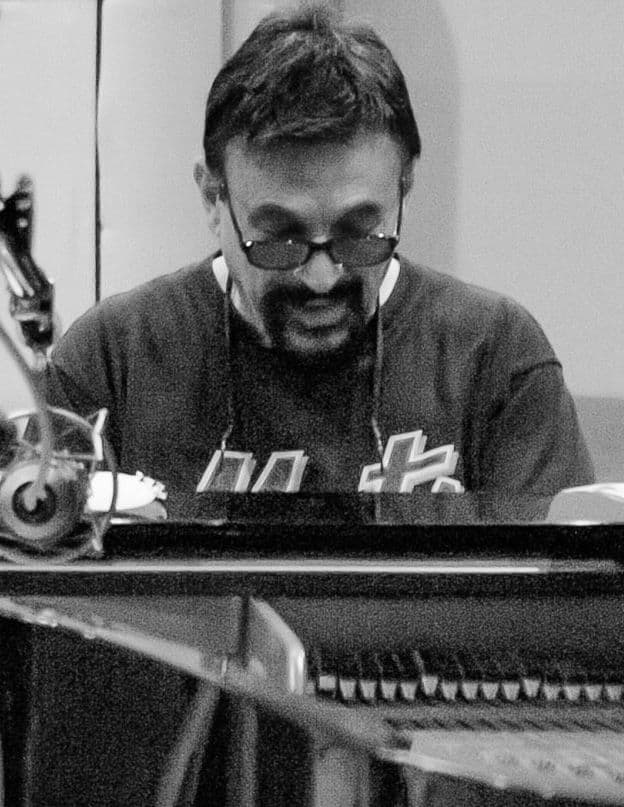The sad state of the days means that pianist Mike Longo will, for at least a good period of time, be remembered more for being the first American jazz musician to succumb to the COVID-19 virus than for the what he did musically, and how it added to the world.
Dorothy Longo, his wife for 32 years, reported his death the penultimate Sunday in March, and noted that he had suffered from an underlying health condition that has made the virus so much more deadly for those who contract it. Along with Dorothy, Longo is survived by a sister, Ellen Cohen.
A swinging, dynamic, intelligent musician, Longo had a major role in jazz as a longtime member of Dizzy Gillespie’s group. His tenure with Gillespie began in the late ’60s, and the pianist was music director for Dizzy from that time to the mid-’70s – he can be heard on the classic, live Swing Low, Sweet Cadillac album on Impulse! Records. Though no longer a permanent member after, Longo continued to collaborate with the trumpeter through the decades.
As heard with Gillespie and his own albums as a leader – especially two 1972 releases on the Mainstream label, The Awakening and Matrix – Longo sounded at home in many shadings of jazz, including Latin and bossa nova rhythms, funk, and blues, where his playing was always natural and soulful.
Born in Cincinnati, he started playing the piano as a child, starting lessons with a teacher at the Cincinnati Conservatory of Music when only just four years old. His family moved to Florida, and Longo began his professional career as a teenager, playing with his father’s dance band (his father played bass).
Before Gillespie heard Longo, the young pianist’s playing caught the ear of the great saxophonist Cannonball Adderley, who at the time was the band director at a high school in Longo’s hometown, Fort Lauderdale. At times, Longo filled in for Adderley’s regular pianist.
The young musician went on to study classical piano technique and repertoire at Western Kentucky State University. An early musical hero for Longo was the renowned pianist Oscar Peterson. Longo studied with Peterson for six months and later told All About Jazz that he learned “how to be a jazz pianist,” picking up the subtleties of harmony, timing, and working in an ensemble.
After that, New York City, the center of the jazz universe, beckoned. Gillespie found Longo playing in the house rhythm section at a jazz club, and the rest was history. Longo’s relationship with Dizzy produced an orchestral composition, A World of Gillespie (1980), with the trumpeter as soloist. This was later played by the Detroit Symphony Orchestra.
The two men connected beyond music, as both belonged to the Baha’i faith. At WBGO, Nate Chinen quoted Dorothy Longo saying that “the Baha’i faith was his moral and musical compass.” The wholistic, unitarian thought in Baha’i was a natural for a musician like Longo, who had an easy way with giving value to and elevating each musical style and idea that flowed through his mind, his heart, and his hands.
Author
-

George Grella wrote the book on Miles Davis’ Bitches Brew. He write other stuff too. killyridols.substack.com/
View all posts
George Grella wrote the book on Miles Davis’ Bitches Brew. He write other stuff too. killyridols.substack.com/










